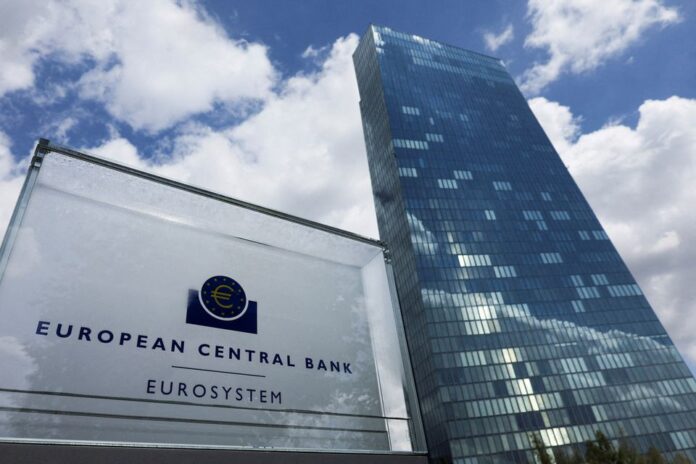The European Central Bank (ECB) warned of rising stability risks for everyone from lenders to governments and households as the economic outlook darkens and officials battle record inflation, according to Bloomberg.
The cost-of-living squeeze is hurting people’s ability to service debts, while Europe’s worsening growth prospects threaten corporate profits, the ECB said Wednesday in its Financial Stability Review.
It also flagged potential dangers to public finances as governments borrow to cushion the impact of the energy crisis, further downward pressure on equities and said house prices may be peaking after a years long advance.
“People and firms are already feeling the impact of rising inflation and the slowdown in economic activity,” ECB Vice President Luis de Guindos said in a statement. “Our assessment is that risks to financial stability have increased, while a technical recession in the euro area has become more likely.”
The mix of soaring prices and shrinking output created by Russia’s war in Ukraine is challenging policymakers as well as investors. The ECB has embarked on its most aggressive cycle of interest-rate increases ever to keep inflation from becoming entrenched – even as an economic downturn looms. The hikes are set to continue, with steps to reduce the central bank’s €5 trillion bond portfolio also taking shape.
“It is very difficult to have financial stability without price stability,” Guindos told reporters in Frankfurt.
Banks, meanwhile, may have to set aside more money for bad loans next year, according to the ECB. It cited “a further sharp deterioration in the economic outlook” and, to a lesser extent, higher expected short-term interest rates.
Following large expenditure during the Covid-19 pandemic, euro-area governments have spent the equivalent of about 1.4% of output to soften the impact of the energy shock, the ECB estimates. It warned that “most of these measures are untargeted,” doubling down on advice that aid should be temporary and aimed at those those most in need.
“The increase in interest rates is weighing more heavily on fiscal positions than previously anticipated,” the report said. “As such, a further deterioration in financial conditions could change market sentiment toward some of the more vulnerable euro-area sovereign issuers.”
Separately, property markets may be “at a turning point” as the rise in borrowing costs dents demand for new loans.
“There are signs that the real-estate expansion of recent years could come to an end, with overvaluation estimates and mortgage rates now standing at their highest levels in more than five years,” the ECB said.


